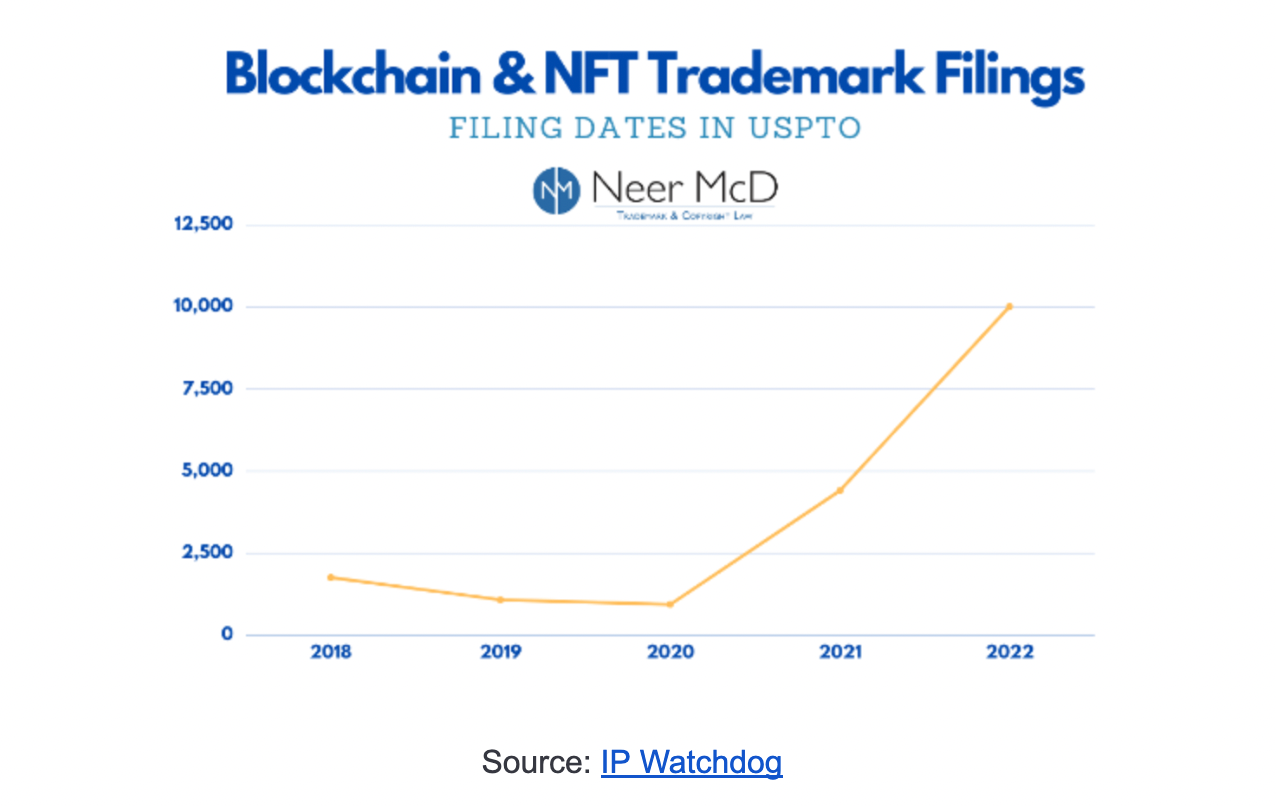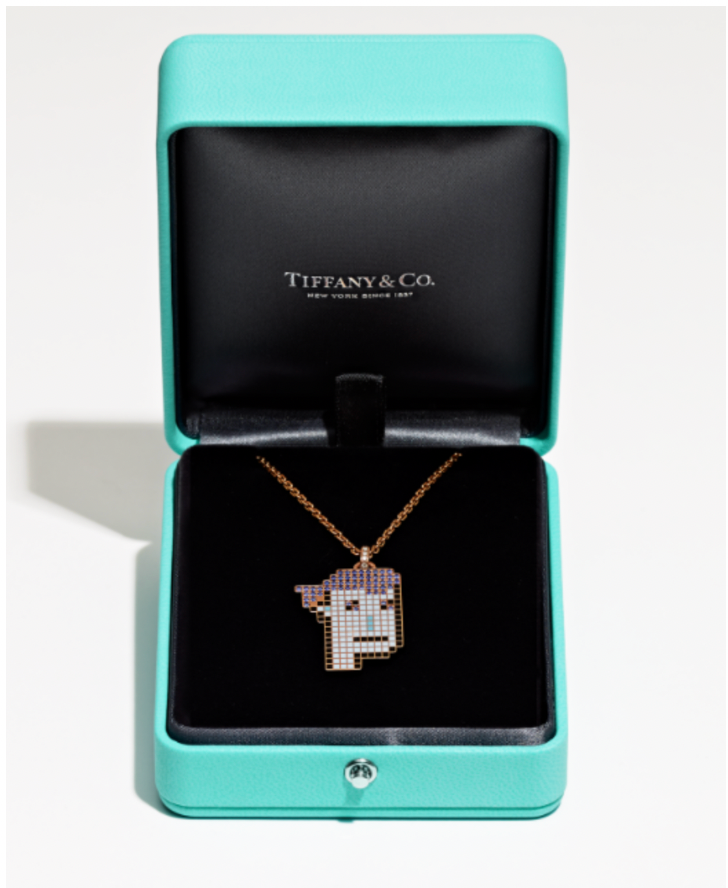Research
Jan 19, 2023Chain Research - Unraveling IP NFTs
As our world continues to evolve into the virtual landscape, the importance of trademark protection for companies and brands cannot be overstated. Revolutionary ideas that are conceived from fertile imaginations have been protected by copyright laws since the U.S was still composed of 13 colonies. Before the creation of the internet, individuals were able to patent their ideas and get them trademarked within weeks. But with the rapidly maturing Web3 industry, trademarking digital assets can be less than ideal if they are not prioritized.
With the emergence of the metaverse and the rise of non-fungible tokens (NFTs), trademark protection has become fundamental for brands and companies to ensure their intellectual property is protected from infringement. Trademark protection is used to protect a brand’s identity, distinguishing it from other similar products or services. Without trademark protection, other companies or individuals can use a brand's logo or name to create confusion in the marketplace or take advantage of a brand's good will. This can lead to lost customers, profits, and even legal action.
Nike recently sued resale platform StockX for unauthorized and infringing use of their trademarks to mint NFTs and allegedly sell counterfeit products. Nike accused StockX of “trademark infringement, unfair competition, false designation of origin/unfair competition, trademark dilution, injury to business reputation and dilution, counterfeiting, and false advertising”. In response, StockX argued that they use Nike trademarks in a non-confusing way and that their authentication process is reliable and even “formerly praised by Nike”.
In the metaverse, trademark protection is imperative because it allows companies to protect their digital assets and identities. As seen with the situation with Nike and StockX, and even Hermès International v. Rothschild, brands are beginning to realize the importance of trademark protection in the virtual world. This is because in the metaverse, companies can create a digital presence that customers can visit and interact with. This digital presence can include NFTs, which are digital representations of real-world objects, such as art, music, or even digital real estate.
In 2021, trademark applications involving blockchain technology and NFTs for goods and services experienced a significant increase in filings with the United States Patent and Trademark Office (USPTO), and the number of applications doubled in 2022. This growth in trademark filings for digital assets was seen across various industries, including hospitality, finance, real estate, entertainment, and even medicine. Major household brands ranging from Home Depot to Visa, have been some of the many recognizable brands who filed for trademarks in the past year.

Source: IP Watchdog
Each NFT includes a unique identifier and metadata about the associated asset that cannot be replaced or replicated, making them ideal for establishing and tracking ownership of both natively digital and tokenized physical assets. When an NFT is sold, copyright ownership does not automatically transfer with the sale, and remains with the owner. NFT creators should consider extending their trademark registrations to cover uses that include bringing digital assets into the physical realm, similar to how traditional brands are racing to trademark their established brand identities in the metaverse.
The Benefits of Passing Off IP Rights to NFT Buyers
One topic that is always discussed in the world of NFTs is the concept of utility. It turns out that offering IP rights might be the most profitable way for buyers to create additional income and value from their digital collectables in the real world. With a heavily volatile NFT market, offering these IP opportunities to holders can increase the exposure of NFT projects in the commercial space, while building a stronger foundation for the project’s community.
In response to a frigid crypto winter, some of the most popular NFT projects have begun adapting their strategies to create tangible investments that go beyond just selling digital art. They are exploring opportunities such as selling products, creating entertainment franchises and partnering with celebrities. For instance, Pudgy Penguins is working on producing cuddly toys, children's books and other merchandise, while Doodles is partnering with Pharrell Williams to create a video series and an album.
One of the most notable transfers of commercial IP rights was for the Bored Ape Yacht Club (BAYC) community. BAYC holders have taken on multiple creative pursuits in industries such as food and beverage, entertainment, fashion, gaming, books and even cannabis. Transferring commercial IP rights has created a flood of business development ventures in recent years, and established a proven track record of success despite constant skepticism.

Limited edition M&Ms based on a metaverse band called Kingship and their several BAYC and MAYC NFTs. (Source)
Turn Your Digital Assets into New Income Streams with Chain NFTs
Selling digital collectables as physical merchandise has been a common theme this bear market, with high-profile projects such as NFTiff selling out in minutes. Whether you’re established on the blockchain or in real life, Chain NFTs assists legendary brands in making their own entrance into Web3. With comprehensive support from start to finish, Chain NFTs can support brands in securing IP rights, product design, researching market opportunities and continued support after launch.
Whether your brand is widely recognized in the NFT space or an illustrious company in Web2, Chain NFTs can accommodate your venture into emerging markets. Read our latest partnership case study with Tiffany and Co., or learn more about our NFT-as-a-Service at https://www.chain.com/nft.

NFTiff Pendant created from a collaboration with Tiffany & Co. and Yuga Labs powered by Chain NFTs.
Disclaimer: NOT LEGAL ADVICE
The information provided on this website does not, and is not intended to, constitute legal advice; instead, all information, content, and materials available on this site are for general informational purposes only. Information on this website may not constitute the most up-to-date legal or other information. This website contains links to other third-party websites. Such links are only for the convenience of the reader, user or browser; the ABA and its members do not recommend or endorse the contents of the third-party sites.
About Chain
Chain is a blockchain infrastructure solution company that has been on a mission to enable a smarter and more connected economy since 2014. Chain offers builders in the Web3 industry services that help streamline the process of developing, and maintaining their blockchain infrastructures. Chain implements a SaaS model for its products that addresses the complexities of overall blockchain management. Chain offers a variety of products such as Ledger, Cloud, and NFTs as a service. Companies who choose to utilize Chain’s services will be able to free up resources for developers and cut costs so that clients can focus on their own products and customer experience. Learn more: https://chain.com.
Connect with Chain for the latest updates:
Twitter: twitter.com/Chain
Telegram: t.me/Chain & https://t.me/ChainAnnouncements
Medium: blog.chain.com
Instagram: instagram.com/Chain
Chain News & Updates
Latest News & Updates
Sign up for the Chain Newsletter - a weekly roundup of new platform features and the latest from the industry.
